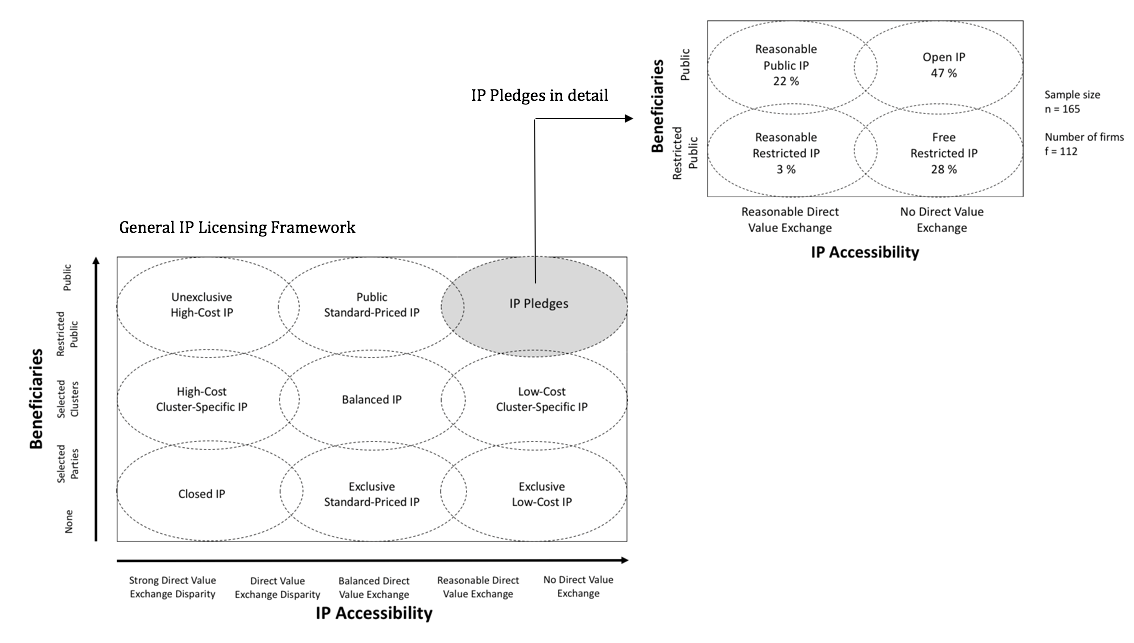This research project focuses on the recent phenomenon of Open IP strategies and approaches. Examples are the 2014 patent pledge of Tesla Motors following Elon Musk's announcement that everyone can use Tesla’s patenThis research project focuses on the phenomenon of so-called patent pledges. Over the past decade, firms have increasingly announced the free or reasonable availability of active patents to the public or a large group of parties. Tesla Motors, Toyota, and Google are only a few prominent examples for firms who apply such strategies.
To better understand this seemingly contradictory approach to intellectual property, this project aims to answer the following three research questions:
(1) What are the characteristics of patent pledges?
(2) What are the motives of firms to adopt patent pledges?
(3) How do patent pledges impact the technology diffusion of emerging technologies?
The individual research questions and their methodology are briefly summarised below.
(1) What are the characteristics of patent pledges?
We analyse 60 patent pledges using qualitative coding to develop two taxonomies: the patent pledge taxonomy and the patent licensing taxonomy. While the patent pledge taxonomy distinguishes between eight types of pledges, the patent licensing taxonomy (see figure below) gives an overview of common licensing-approaches such as patent pools and cross-licensing.

Figure 1: IP Licensing Framework (Source: Ehrnsperger, University of Cambridge, 2018)
(2) What are the motives of firms to adopt patent pledges?
We conduct about 30 semi-structured interviews with IP-experts from a variety of industries to uncover rationales behind patent pledges, half of which work in an organisation that applies patent pledges. Furthermore, we gain insights about the motives from the 60 patent pledges collected for research question 1.
(3) How do patent pledges impact the technology diffusion of emerging technologies?
We use agent-based modeling to simulate technology adoption processes in the context of patent pledges. Specifically, we model the adoption-decision of technology-users while also incorporating their social network. Factors that influence the decision will be derived from the literature and statistical analysis of survey data. After conducting experiments with the model parameters, we will be able to measure the impact of patent pledges on technology diffusion in different technology life-cycle stages. Ultimately, this will benefit organisations in their decision whether to apply patent pledges to increase adoption rates.
This project is funded by the Engineering and Physical Sciences Research Council (EPSRC), respectively UKRI and the Research and Development Management Association (RADMA).
Project lead: Jonas Ehrnsperger
Related publications
Ehrnsperger, J. F. and F. Tietze (2019). "Patent pledges, open IP, or patent pools? Developing taxonomies in the thicket of terminologies." Plos One 14(8): e0221411.
Ehrnsperger, J. and F. Tietze (2019). The patent pledge taxonomy. IEEE Temscon. Atlanta, US.
